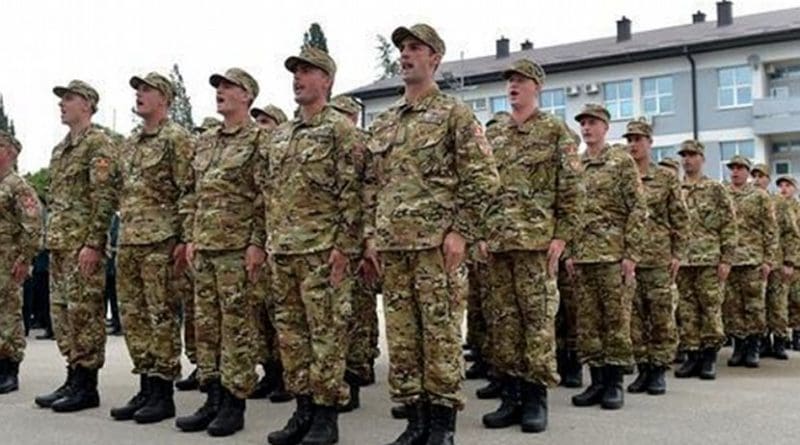Montenegro Officers To Join NATO Force In Kosovo
By Dusica Tomovic
Montenegro plans to deploy two military officers in the NATO-led mission in Kosovo, its first new international operation since it joined the Western military alliance last year.
Montenegro’s National Security Council on Friday decided to send two military personnel to join KFOR, the NATO-led operation that has maintained peace in Kosovo since the 1999 war in the former Serbian province ended.
The council, composed of the Prime Minister, President and speaker of the parliament, said a formal proposal would be sent to parliament, which by law in Montenegro has the final word on troop deployments abroad.
“One officer will be deployed in [KFOR] command in Pristina and the other in the mission’s regional headquarters in Skopje, Macedonia,” the press statement after the meeting said.
Montenegro has been mulling plans to join KFOR since 2015 but only finalised the decision after fully joining NATO in June 2017.
Although Montenegro’s army has participated in several international missions, including NATO-led operations in Afghanistan, it has never deployed military units in Kosovo because of the complicated political situation.
A large proportion of Montenegrins, about a third of the population, declare themselves as ethnic Serbs and still strongly oppose Kosovo’s independence, which Montenegro recognised in 2008.
Serbia has vowed never to recognise the independence of its former province although it has agreed to join EU-led talks on “normalising” relations.
Ethnic Serbs in Montenegro and their politicians also maintain that Kosovo is still a province of Serbia.
Although Kosovo and Montenegro have established diplomatic relations, Podgorica still has only a chargé d’affaires in Pristina, not an ambassador.
NATO has been leading peace-keeping operations in Kosovo since June 1999 in support of wider international efforts to build peace and stability in the area.
The force was established following NATO’s 78-day air campaign against former Serbian leader Slobodan Milosevic’s regime, aimed at putting an end to the violence in Kosovo.
Its original objectives were to deter renewed hostilities, establish a secure environment and ensure public safety and order, demilitarize the Kosovo Liberation Army, KLA, support the international humanitarian effort and coordinate with the international civil society presence.
So far, Croatia is the only ex-Yugoslav republic to have contributed soldiers to KFOR. Zagreb deployed its first unit in 2009.

